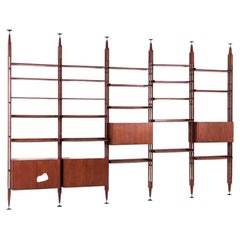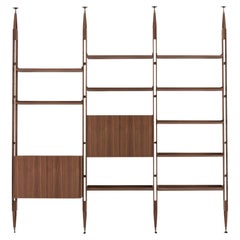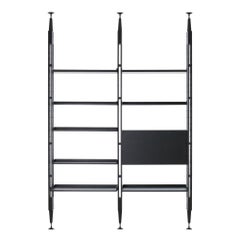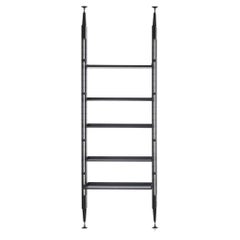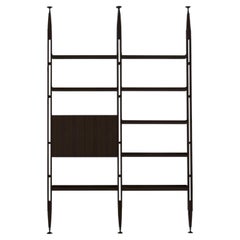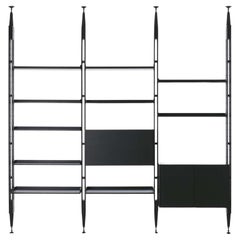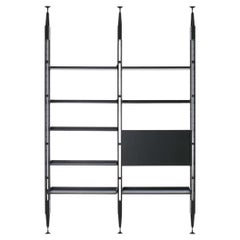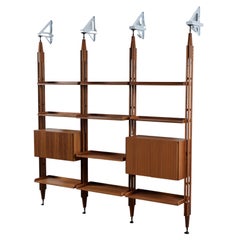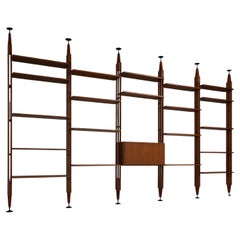Albini Infinito
Mid-20th Century Italian Mid-Century Modern Bookcases
Teak
2010s Italian Mid-Century Modern Bookcases
Wood
2010s Italian Mid-Century Modern Bookcases
Wood
2010s Italian Mid-Century Modern Bookcases
Wood
2010s Italian Mid-Century Modern Bookcases
Wood
2010s Italian Mid-Century Modern Bookcases
Wood
21st Century and Contemporary Italian Mid-Century Modern Bookcases
Wood
21st Century and Contemporary Italian Mid-Century Modern Bookcases
Wood
Recent Sales
Late 20th Century Italian Mid-Century Modern Shelves
Teak
Vintage 1950s Italian Mid-Century Modern Bookcases
Aluminum
People Also Browsed
2010s American Modern Credenzas
Metal
21st Century and Contemporary American Bohemian Chandeliers and Pendants
Brass
21st Century and Contemporary German Mid-Century Modern Chandeliers and ...
Metal, Iron
Vintage 1950s French Mid-Century Modern Chandeliers and Pendants
Metal, Brass, Chrome
Vintage 1970s Italian Mid-Century Modern Living Room Sets
Metal
21st Century and Contemporary French Mid-Century Modern Wall Lights and ...
Metal, Aluminum
Mid-20th Century Danish Scandinavian Modern Bookcases
Mahogany
21st Century and Contemporary Italian Art Deco Beds and Bed Frames
Chrome
2010s American Modern Coffee and Cocktail Tables
Steel, Iron
Vintage 1970s Danish Cabinets
Wood
2010s American Modern Cabinets
Brass
2010s Austrian Jugendstil Table Lamps
Brass
Vintage 1970s Italian Post-Modern Bedroom Sets
Leather, Wood, Lacquer
Vintage 1950s Italian Mid-Century Modern Bookcases
Aluminum, Steel
Vintage 1970s French Mid-Century Modern Shelves
Steel
21st Century and Contemporary Israeli Organic Modern Chandeliers and Pen...
Steel
Albini Infinito For Sale on 1stDibs
How Much is a Albini Infinito?
Franco Albini for sale on 1stDibs
While working under the polymath Gio Ponti — arguably the most important figure in 20th-century Italian modernism — furniture designer Franco Albini nurtured a love for modern forms combined with traditional craft techniques.
Albini is widely known for working with organic materials such as rattan and cane for his chairs and other seating, but he also played a pivotal role in the Italian rationalist movement of the early 20th century, which saw architects and furniture makers applying a strict emphasis on geometry in their work. Rationalists drew on Ancient Roman architecture but rejected ornament, much in the way that Le Corbusier and celebrated Bauhaus figures such as Ludwig Mies van der Rohe had in their modernist furniture.
Albini received his degree in architecture from the Polytechnic University of Milan in 1929, and, in 1931, he founded his practice in Milan, where he tackled workers’ housing and other reconstruction projects. A gifted urban planner, he also developed the Palazzo Bianco, Palazzo Rosso and Tesoro di San Lorenzo museums in Genoa. While Albini is revered for his Margherita chair — a Triennale Milano award winner created for Bonacina in 1951 — he also collaborated with manufacturers Poggi and Cassina in the 1940s on seating, tables and more that embodied his artistic vision. Of that mid-century work, the one piece that perhaps best captures this vision is the iconic Luisa chair.
With its cherry red upholstery and sinuous wooden legs that seem to float aboveground, the Luisa is a genuine masterpiece. It is also a testament to Albini’s perfectionism, as it endured several prototypes — including one made by Knoll in the late 1940s — and took approximately 15 years to design. Poggi launched the final version of the armchair in 1955, earning Albini the prestigious Compasso d’Oro from Italy’s Association for Industrial Design. It is produced today by Cassina. Albini named the chair for someone who likely saw the process firsthand: his personal secretary of two decades, Luisa Colombini.
Find vintage Franco Albini furniture on 1stDibs.
A Close Look at Mid-century Modern Furniture
Organically shaped, clean-lined and elegantly simple are three terms that well describe vintage mid-century modern furniture. The style, which emerged primarily in the years following World War II, is characterized by pieces that were conceived and made in an energetic, optimistic spirit by creators who believed that good design was an essential part of good living.
ORIGINS OF MID-CENTURY MODERN FURNITURE DESIGN
- Emerged during the mid-20th century
- Informed by European modernism, Bauhaus, International style, Scandinavian modernism and Frank Lloyd Wright’s architecture
- A heyday of innovation in postwar America
- Experimentation with new ideas, new materials and new forms flourished in Scandinavia, Italy, the former Czechoslovakia and elsewhere in Europe
CHARACTERISTICS OF MID-CENTURY MODERN FURNITURE DESIGN
- Simplicity, organic forms, clean lines
- A blend of neutral and bold Pop art colors
- Use of natural and man-made materials — alluring woods such as teak, rosewood and oak; steel, fiberglass and molded plywood
- Light-filled spaces with colorful upholstery
- Glass walls and an emphasis on the outdoors
- Promotion of functionality
MID-CENTURY MODERN FURNITURE DESIGNERS TO KNOW
- Charles and Ray Eames
- Eero Saarinen
- Milo Baughman
- Florence Knoll
- Harry Bertoia
- Isamu Noguchi
- George Nelson
- Danish modernists Hans Wegner and Arne Jacobsen, whose emphasis on natural materials and craftsmanship influenced American designers and vice versa
ICONIC MID-CENTURY MODERN FURNITURE DESIGNS
- Eames lounge chair
- Nelson daybed
- Florence Knoll sofa
- Egg chair
- Womb chair
- Noguchi coffee table
- Barcelona chair
VINTAGE MID-CENTURY MODERN FURNITURE ON 1STDIBS
The mid-century modern era saw leagues of postwar American architects and designers animated by new ideas and new technology. The lean, functionalist International-style architecture of Le Corbusier and Bauhaus eminences Ludwig Mies van der Rohe and Walter Gropius had been promoted in the United States during the 1930s by Philip Johnson and others. New building techniques, such as “post-and-beam” construction, allowed the International-style schemes to be realized on a small scale in open-plan houses with long walls of glass.
Materials developed for wartime use became available for domestic goods and were incorporated into mid-century modern furniture designs. Charles and Ray Eames and Eero Saarinen, who had experimented extensively with molded plywood, eagerly embraced fiberglass for pieces such as the La Chaise and the Womb chair, respectively.
Architect, writer and designer George Nelson created with his team shades for the Bubble lamp using a new translucent polymer skin and, as design director at Herman Miller, recruited the Eameses, Alexander Girard and others for projects at the legendary Michigan furniture manufacturer.
Harry Bertoia and Isamu Noguchi devised chairs and tables built of wire mesh and wire struts. Materials were repurposed too: The Danish-born designer Jens Risom created a line of chairs using surplus parachute straps for webbed seats and backrests.
The Risom lounge chair was among the first pieces of furniture commissioned and produced by celebrated manufacturer Knoll, a chief influencer in the rise of modern design in the United States, thanks to the work of Florence Knoll, the pioneering architect and designer who made the firm a leader in its field. The seating that Knoll created for office spaces — as well as pieces designed by Florence initially for commercial clients — soon became desirable for the home.
As the demand for casual, uncluttered furnishings grew, more mid-century furniture designers caught the spirit.
Classically oriented creators such as Edward Wormley, house designer for Dunbar Inc., offered such pieces as the sinuous Listen to Me chaise; the British expatriate T.H. Robsjohn-Gibbings switched gears, creating items such as the tiered, biomorphic Mesa table. There were Young Turks such as Paul McCobb, who designed holistic groups of sleek, blond wood furniture, and Milo Baughman, who espoused a West Coast aesthetic in minimalist teak dining tables and lushly upholstered chairs and sofas with angular steel frames.
Generations turn over, and mid-century modern remains arguably the most popular style going. As the collection of vintage mid-century modern chairs, dressers, coffee tables and other furniture for the living room, dining room, bedroom and elsewhere on 1stDibs demonstrates, this period saw one of the most delightful and dramatic flowerings of creativity in design history.
